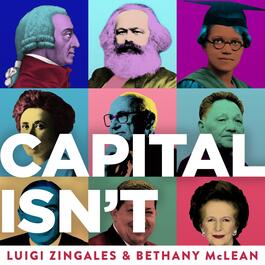
Bethany McLean's Interviews
Can The Dollar Be Dethroned?, with Ken Rogoff
Americans are often told that they benefit from the privilege of the dollar serving as the world's currency. A strong dollar makes imports cheaper, facilitates demand for American companies, and is tied to cheap government borrowing. But what happens when this powerful privilege weakens? What does it even mean for the
The Fertility Crisis: Capitalism's Next Challenge, with Sir Niall Ferguson
For years, the world worried about overpopulation and our capacity to sustain ever-increasing numbers of people. Now, the worry is underpopulation—and recent numbers are stunning. Fertility rate is the average number of children that are born to a woman over her lifetime. According to the United Nations, this number is
The Economic Costs of a Phone-Based Childhood, with Jonathan Haidt
In one of this year's bestselling books, "The Anxious Generation: How the Great Rewiring of Childhood is Causing An Epidemic of Mental Illness," New York University social psychologist Jonathan Haidt argues that today's childhoods spent under the influence of smartphones and overprotective parenting has led to the repo
Bethany McLean, previously was editor at large with Fortune Magazine and is currently a writer for Vanity Fair. She has coauthored multiple books including The Smartest Guys in the Room and her most recent titled The Big Fail. On the podcast we discuss the Enron scandal, how Nvidia is different from Enron, 2008 GFC, pr
Joseph Stiglitz's Vision of a New Progressive Capitalism
In the last 60 years, few economists have contributed more to exposing the failures of capitalism than Joseph Stiglitz. Formerly the chief economist of the World Bank and chair of the U.S. Council of Economic Advisers under President Bill Clinton, Stiglitz won the Nobel Prize in Economics in 2001 for his work showing t
Financial Fallout And Our Economy With Bethany McLean
While many of us would prefer to forget the pandemic ever happened, the choices we made (as a society and perhaps, personally) in 2020 continue to have lingering effects. We know that women were disproportionately affected by the pandemic — an estimated two million women left the workforce due to the strains of caregiv

































Shout-outs
Add shout-out